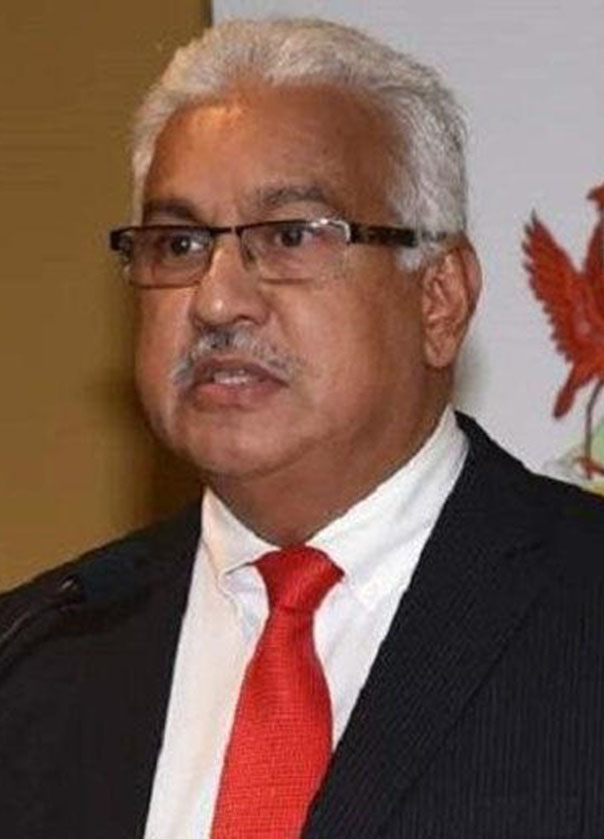(Trinidad Express) Trinidad and Tobago will receive COVID-19 vaccines for 20 per cent of its population in the first instance after its development.
Health Minister Terrance Deyalsingh at a COVID-19 news conference yesterday said that Trinidad and Tobago is currently signed on to a vaccine drive managed by the World Health Organization.
The vaccine facility, Covax, he said is currently pooling 12-15 vaccine candidates in different stages of development. While there is currently no approved vaccine in the world, Deyalsingh said that the majority of candidates under the Covax facility are in phases two and three of clinical trials.
“At this point in time there are no regulatory approved COVID vaccines. What we have signed on to in Trinidad and Tobago is a vaccine facility called Covax managed under WHO (World Health Organisation). What the Covax facility does for any country that is signed onto it as we have done it pools resources and invests in a portfolio of promising vaccine candidates so we are spreading our risk by not putting all our eggs into one basket by dealing with only one vaccine manufacturer. So under Covax that facility will yield about 12-15 vaccine manufacturers all of which have candidate vaccines, most of which are either in phase two or phase three of clinical trials, with phase three being the last clinical phase,” he said. According to Deyalsingh the Covax principle is based on equal access to a regulated vaccine All countries, regardless of size and influence, he said would gain access to coverage for 20 per cent of its population when such a vaccine is developed. “In signing on to that the countries agree that Covax is built on the issue of equity. What that means is that any country regardless of income status, regardless of size, regardless of geo political stance in the world will have equal access to a vaccine once it has been formulated, proven to be safe and effective and pass its regulatory muster.”
“The ideal between this is that Covax and WHO and we all feel it is better or all to have equitable access to vaccines around the world rather than all in one country. What is good for one has, to be good for all. So, in signing on to the Covax facility any country regardless of size will get in the first instance vaccines to cover 20 percent of its population. So, whether you are a small country of 10,000 people or a large country of 200 million or 1 billion, you will get 20 per cent across the board to vaccinate your population,” he said.
In Trinidad and Tobago, 280,000 citizens would be granted access to these vaccines when released. In addition to this, he said, Cabinet has signed on to receive an additional 162,000 to vaccinate at least 33 per cent of the population. As a result, 462,000 vaccines will be received from Covax in total.
“What does that mean for Trinidad and Tobago, 20 percent of our population is 280,000. In the first chance of the vaccination drive, we will be getting vaccines to vaccinate 280,000 citizens of Trinidad and Tobago. After that, in the second wave of the vaccination drive, Cabinet has signed on with Covax to purchase vaccines for 33 per cent of the population. 33 per cent is 462,000 so after we get out first 280,000 we will then get another 182,000 to vaccinate 33 per cent of the population. That is how the COVAX facility works,” said Deyalsingh.
Of the companies being invested in by the Covax initiative are the AstraZenecal Oxford vaccine, the CanSino Biological Group, Gamalaya Research Institute, Jannsen Pharmaceuticals, Moderna, Biotech, the Wuhan Institute of Biologicals, Sinopharm and Novavax,
Deyalsingh said that of these candidates, two phase three trials have been halted as conditions were developed by research subjects.
“Out of these vaccine candidates, I believe two of these have been paused because in the phase three trials one person each in the phase three have come down with some sort of condition which has to be investigated. That is the good thing about investing in a portfolio of candidates it means if one shuts down for one reason research and access to other candidates goes on,” he said.





